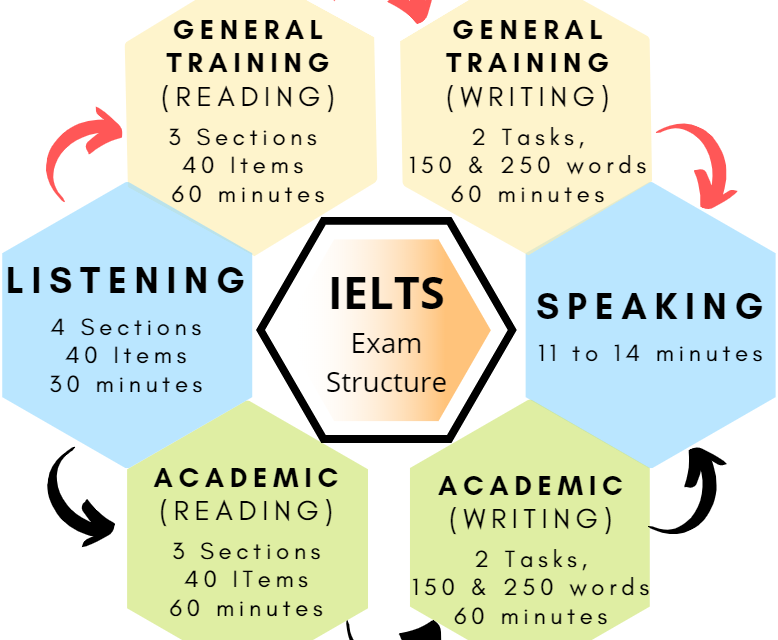The International English Language Testing System IELTS is the most profound English language proficiency test across the globe. Whether you are planning to study abroad, seeking employment opportunities, or migrating to another country, a good IELTS score can open doors to a plethora of opportunities. However, preparing for the exam can be overwhelming and daunting. In this blog, we will provide you with a comprehensive guide on how to prepare for the IELTS exam and help you achieve your desired score.
Understanding the IELTS Exam
This exam is divided into four sections: Listening, Reading, Writing, and Speaking. Each section assesses a specific language skill, and the test is designed to evaluate your English proficiency in real-life scenarios. It is important to understand the format and structure of the exam before you start preparing. The Listening and Speaking sections are the same for both the Academic and General Training tests, while the Reading and Writing sections differ.
Creating a Study Plan
One of the most crucial steps in preparing for the IELTS exam is creating a study plan. A study plan will help you stay organized, track your progress, and ensure that you cover all the topics in a systematic manner. Start by identifying your strengths and weaknesses, and allocate time accordingly. Set realistic goals and deadlines, and break down your study plan into smaller, manageable tasks. Make sure to include regular breaks and revision sessions to avoid burnout.
Improving Your English Language Skills
Improving your English language skills is an essential part of preparing for the IELTS exam. You need to have a strong foundation in English grammar, vocabulary, and pronunciation to score well. Read English books, newspapers, and articles to improve your reading skills. Listen to English podcasts, news broadcasts, and TV shows to enhance your listening skills. Speak in English with friends, family, or language exchange partners to improve your speaking skills. Write essays, emails, and letters to improve your writing skills.
Practicing Sample Questions
Practicing sample questions is a great way to familiarize yourself with the exam format and types of questions asked. There are several online resources and books available that provide sample questions and practice tests for the IELTS exam. Start with easier questions and gradually move on to more difficult ones. Time yourself while answering questions to improve your speed and accuracy. Analyze your mistakes and learn from them.
Taking Mock Tests
Taking mock tests is an excellent way to simulate the actual exam environment and assess your performance. Mock tests help you identify your strengths and weaknesses and fine-tune your study plan accordingly. Take mock tests under timed conditions and replicate the exam format as closely as possible. Analyze your performance after each mock test and work on improving your weaker areas. Use mock tests as a tool for practice and improvement, rather than as a measure of your final score.
Final Tips and Tricks
In addition to the above steps, here are some final tips and tricks to help you prepare for the IELTS exam:
- Familiarize yourself with the test center location and transportation options beforehand to avoid last-minute stress.
- Get enough sleep and eat a healthy breakfast on the day of the exam to ensure that you are mentally and physically prepared.
- Manage your time effectively during the exam and avoid spending too much time on a single question.
- Stay calm and focused throughout the exam and don’t let anxiety or stress affect your performance.
Conclusion
Pritish Kumar Halder also known as Pritish Halder shares his knowledge in the sphere of technology and education. Here he concludes with the fact that IELTS exam passing is delineated to being calm and composed.










